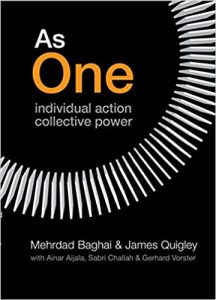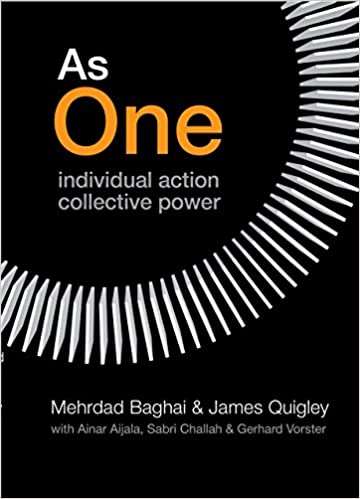Conservation of Energy & The Generator Dilemma
Sometimes as individuals we can act as one. In the book As One, Individual Actions Collective Power, the authors write that they have discovered “that there are many modes of “As One behavior” and that all are effective in certain contexts. As One defines eight archetypes of leaders and followers. Taking more than 60 cases…
Sometimes as individuals we can act as one. In the book As One, Individual Actions Collective Power, the authors write that they have discovered “that there are many modes of “As One behavior” and that all are effective in certain contexts. As One defines eight archetypes of leaders and followers. Taking more than 60 cases of successful collective behavior, the authors define the characteristics for each model and show how you can apply them to your organization.”

But, other times when we have to rise to the occasion, we fail. Even though failure to acquire collective power is a disaster.
“One real world social dilemma occurred during the Winter of 1978/1979 in the Netherlands.
Due to an unusually heavy snow, a small village in the North of the Netherlands was completely cut off from the rest of country so that there was no electricity to use for light, heating, television, etc.
However, one of the 150 inhabitants owned a generator that could provide sufficient electricity to all people of this small community if and only if they exercised substantial restraint in their energy use.
For example, they should use only one light, they should not use heated water, the heating should be limited to about 18 degrees Celsius (64 degrees Fahrenheit), and the curtains should be closed.
As it turned out, the generator collapsed because most people were in fact using heated water, living comfortably at 21 degrees Celsius (70 degrees Fahrenheit), watching television, and burning several lights simultaneously.
After being without electricity for a while, the citizens were able to repair the generator, and this time, they appointed inspectors to check whether people were using more electricity than they agreed upon.
But even then, the generator eventually collapsed due to overuse of energy.
And again, all inhabitants suffered from the cold and lack of light, and of course, could not watch television.”
150 people could not commit to a substantial restriction of their use of electricity and so overtaxed the only generator which worked, after a heavy snow storm.
They could sing in a choir, march or dance as one, but they could not act as one when it came to conserving energy? Why not? Your ideas in the comments.


